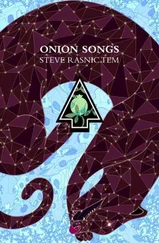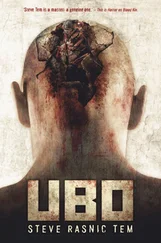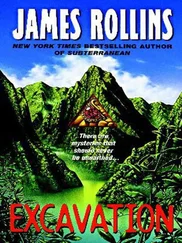~ * ~
“Reed!” Hector Pierce shouted, in a voice not quite his own. Joe Manors’s skin crawled at the strangeness of it. “When you comin’ home, boy?” The old man laughed harshly. Then a moaning and a crying came from within his chest. Joe started. Hector’s mouth had locked shut, but Joe could still hear it distinctly: a child’s cries, a trapped child’s desperate pleas.
~ * ~
The phone floated up into Reed’s hand. He held it up to his ear in slow motion.
“It’s time you were gettin’ home, boy,” his father was saying, his loud voice garbled as if under water. “Long past time. We need you here.”
Then the moans began, interspersed with the slaps of hard leather against skin, the moans drawing out, dying…
Reed’s little sister floated past him, her eyes white and cloudy, her small dress torn and streaked with some dark substance, her nose and ears and lips disintegrating into clumps and ribbons of soft flesh that drifted about her head.
Reed opened his mouth wide, hoping for the greenness to fill him, but it would not.
Ben had been on his way out of town. The spare pickup, the old Chevy, had been hard to start, so hard that at first he thought he’d be stuck here, to face the flood. Maybe that was proper; he’d missed the first one. But finally the engine had fired, and though the truck did sound like a cross between an old washing machine and a vacuum cleaner, it still ran. The old logging road that passed behind his house was barely negotiable, but the main road had been filled by that eerie fog. The logging road ran a little ways up the slope behind the town, then parallel to it for a while before cutting up a narrow hollow past the old Maynard place. From there Ben could take a couple of dirt roads that eventually came out above the Taylor homeplace.
Maybe he could get Reed out of there before the flood moved up the hollow.
But Ben stopped in his escape when he heard the gray boards flying apart behind him. He pulled the truck onto a wide place overlooking the town, got out, and leaned against the hood. He should be going, time was short, but it was important that he see the last moments of Simpson Creeks, the town he’d lived in all of his life.
He watched in fascination as the concrete slab suddenly seemed flexible, buckling all up and down its length like a series of piano keys being played. Great cracks broke the slab into dozens of large pieces, it settled into a rough sort of levelness, then buckled once again, more explosively this time, sending sprays of gravel and plumes of dust high into the air, followed by smaller eruptions of cans, bottles, bits of wood, that had been hiding under the stone.
Then the shadows slipped out of the cracks, long and narrow with a strange delicacy to their movements. They didn’t linger for Ben to identify any of them, but blended quickly into the lines of the waves, adding a further darkness to the water.
The surf foamed suddenly whiter over the slab, and then the slab sank beneath the waves, trailing a mass of air bubbles.
The hotel was the first building to come down, as he would have expected. The north wall buckled in completely and the flood, discovering the breach, pushed in with all its force, expanding the wound and bringing down most of the second story. The other walls wavered, seeming to expand and contract, then the front facade collapsed in all directions with an explosion of bricks. The roof hung on a little longer, bobbing up and down like one of those statues with the bounding, spring-necked head. Then it too fell, bringing down all the uprights with it. The roof spun around loose in the water, then the flood took it down the road and out of town, toward Inez Pierce’s.
The flooded street was full of shadowy debris at this point, gathering around the main buildings and clustering in pockets here and there. The debris seemed somehow softer in the increasing darkness, with more curves than before.
Like heads, backs, shoulders, arms, hands.
He could see them now, the hands grasping at the sides of the cafe, the railroad station, the Parkey house. Shoulders pushing against Simpson’s General Store, his own Feed Store. Bodies massing against every wall. Dark fingers tore at the tar paper covering the Simpson Creeks Post Office, pulling at its small support beams, rending it from the side of the General Store.
The dark flood rushed in through the door of his Feed Store, carrying a mass of the black shapes with it, and the walls suddenly pushed outward, the building collapsing like a house of cards.
Dozens of the dark shapes clumped together like black mushrooms on the side of Charlie’s store. There was a brief pause, then the entire building went over on its side. Some of the shapes drifted away on the flood, others slipped inside the fallen structure with the water. Hundreds of cans, bottles, packages, barrels, masses of paper and cardboard, tools, household goods, spread fan-like into the swift-running water.
Then everything fell silent. Maybe it was all over. But Ben felt compelled to lean forward off the hood, holding his breath, waiting.
Reflections suddenly broke the darkness of the water. Highlights. Dim lights under the surface. Here and there, a growing clarity of movement.
When they were first married, Ben and Martha went on a honeymoon trip through Pennsylvania and some of the New England states. One afternoon they had stopped at a shop outside Philadelphia, where an old watchmaker had a model village displayed in his window. Periodically small figures came out of the buildings of that village to perform—clockwork automatons. Fine Swiss movements, the old man had said.
That model village had looked exactly like Simpson Creeks did at the moment. Bustling with people going about their daily activities.
Several old-timers walked around the remains of Charlie Simpson’s store, chatting animatedly, gesturing, occasionally picking up cans and bottles out of the water and examining them. Ben recognized “Moldy” Clarke and Jessie Flanders, who’d both been killed in the first flood, but their bodies never found. He could also see—if he could believe his eyes—Bobbie Gibson, who’d died of a heart attack when Ben had been a teenager. Vivid, brighter than life. He could see the bright pinkness of their faces, the dazzling white of their hair. They were much more real than the landscape around them.
Lizzy Gibson, Bobbie’s ancient mother, was walking down the street using her cane, a paper sack under her arm. Her feet and cane tip touched the surface of the flood and sank no further. Ben couldn’t remember if she’d survived Bobbie or not.
Johnny Shedako, the Japanese man who’d been many things throughout Ben’s childhood—junk dealer, insurance salesman, farm equipment mechanic—was helping Garter Jones with his corn husker at the site of Ben’s wrecked store. The corn husker was a twisted wreck, rusted throughout, pieces missing, and, unless Ben was mistaken, upside down there in the water.
Jimmy Decker, Wilson Fenton, and Jackie DeLanny were racing each other down the street, their feet making no noise as they struck the water. They’d all lived in houses in a row along the banks of the main channel of the Simpson Creeks, and had perished when those houses were reduced to kindling by the flood.
Gillian Marsh was flirting with Harold Specktor near what used to be the cafe. Emil Johannsen was chasing his dog Crawdad up the street. The oil-colored hound had a tail like a snake. When Ben had been six or seven, Mr. Johannsen had spent several hours each week showing off the tricks his dog could do with that tail.
Ben heard the tinny sound of the bicycle bell and was suddenly a boy again, ten years old and running terrified down the gravel road past their house. He jerked the truck door open and leaped into the cab.
Читать дальше












